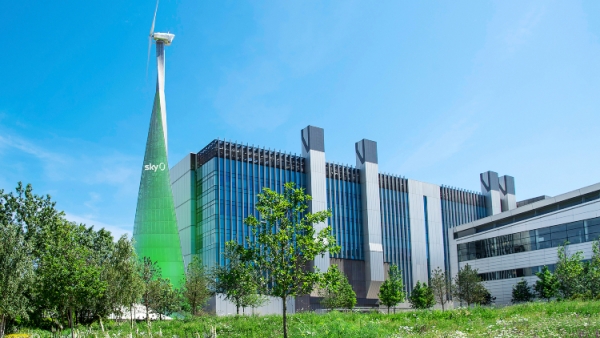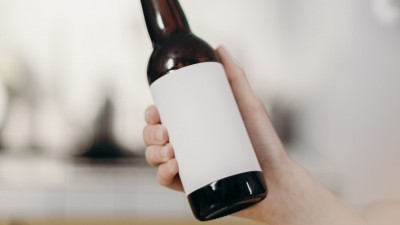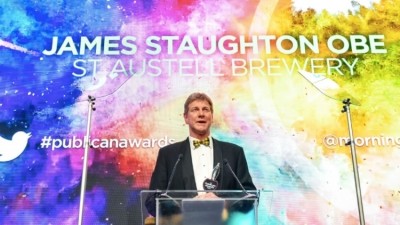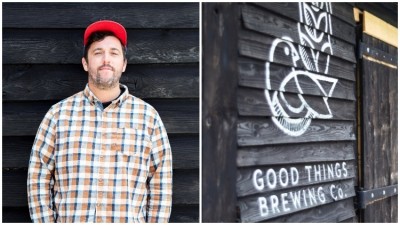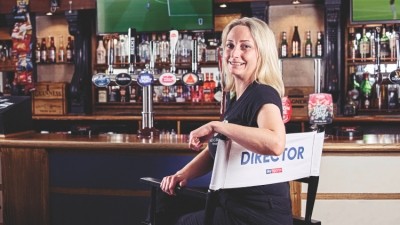In association with Sky
How are pub companies focusing on sustainability?

A report published last month by industry body UKHospitality showed more than 80% of people expect pubs, bars, restaurants and hotels to engage on at least some aspects of sustainability.
Just over 40% would pay a premium for ethically sourced food and nearly a quarter would do so for evidence of a business using extra income to reduce its carbon footprint.
Some of the best industry initiatives are highlighted through the Best Sustainable Pub Company category of the Publican Awards, sponsored by Sky.
Sky’s head of inspirational business Fiona Ball says: “Sustainability is fundamental to the future of all our businesses. It’s an issue that is important to our customers and our employees.
“Every business understands they exist in the broader ecosystem and that we can’t just be good for ourselves. We have a responsibility to be good for the planet, the people we serve and the communities in which we operate.”
Here, we look at the finalists in the 2019 Publican Awards in the category of Best Sustainable Pub Company award to see how they are making an impact.
Darwin & Wallace
Food waste has been a big focus for bar chain Darwin & Wallace, last year’s winner, which opened its eighth site in 2019. Founder Mel Marriott says: “One of the biggest things we’ve done is give guests a choice about how much food they want to have on their plate.”
A burger, for example, appears as a separate item on its menus, with fries and garnishes ordered separately and the practice runs right through the Darwin & Wallace menu.
“We decided the best way to cut waste was not to generate it in the first place,” says Marriott. “It’s about not dictating to people but offering them a choice, helping them to decide what they’d like to have, so they have extra food heaped on their plate that they don’t want.”
Cling film has been outlawed in the kitchen. Executive chef Simon Duff’s advice to sceptical staff? Use lids instead.
The less waste policy carries through to the bar teams as well, with cocktail garnishes only being used where absolutely necessary to enhance the taste of a drink. Where used they’re added in desiccated form, which extends their shelf life and delivers more intense flavour.
Cocktail syrups are made in-house with wonky fruit and veg rejected by the supermarkets, and straws are out – even paper ones.
“We’re all capable of drinking without a straw,” says Marriott. “Getting rid of plastic straws is not the only thing that can be done. I’d urge every company to go a step further and look at everything that goes into drinks, whether it’s garnishes, straws or plastic umbrellas, and ask whether they really need it.
“A lot of the changes that can be made don’t need a lot of capital expenditure, just a little bit more thought and effort.”
Darwin & Wallace’s recycling rate is up around the 95% mark and some venue teams have visited recycling centres to raise awareness of its importance.
“It really is possible to have a profitable business and run it in a way that minimises the impact on the environment,” Marriott adds. “More and more consumers are aligning their spending with companies they believe have wider interests at heart than just making money.”
Liberation Group
The Liberation Group has put cutting energy use high on its list of environmental priorities for its pubs. The approach has reduced the company’s impact on the environment and delivered cost savings.
“It’s involved first putting in place controls to measure what we were consuming already,” says commercial director Fred Vanderplank. “Until you understand how much energy you’re using, it’s hard to reduce how much you are.”
Practical steps have included a switch to a 100% sustainable electricity supply, desktop tracking of energy consumption for each site, LED lighting and installing cellar cooling controls to eradicate unnecessary energy use.
The group has also retrofitted water-less urinals where possible and is moving towards mist taps in restrooms to reduce water consumption.
“There are lots of developments coming through and it’s about embracing that technology to see what it can deliver for us,” says Vanderplank.
Liberation has also worked with procurement services company Regency Purchasing to streamline its food supply base, shifting emphasis from national to local suppliers.
“We consolidated from 25 suppliers to six or seven and reduced our food miles by about 800,000,” he adds. “That’s something we know our customers value. People have a strong affinity for local produce and we name-check all of those suppliers on menus.”
It’s also introduced compostable coffee cups and takeaway boxes.
Vanderplank says: “There are a lot of initiatives that tick all the boxes; they help us to save money and help the environment and that’s the absolute sweet spot.
“We’re looking at each part of our business and trying to minimise the results of our actions on the environment. It’s just trying to make sure we’re future-facing and thinking about helping our customers to do that as well.”
The next technological advance is the introduction of electric car charging points in pubs with car parks. Three have been installed already and 15 more are on the way.
“A lot of those car owners will search for hotels or restaurants with car charging points and will find us,” he adds. “We’re helping them to use the technology of the cars they’ve bought and driving extra revenue back to us. It gives us a point of difference.”
Oakman Inns
It all began on April 22, 2017. That was the date of Earth Day that year and the day that Hertfordshire-based Oakman Inns became the first pub business to outlaw single-use plastic straws. It implemented the #BanTheStraw campaign and offered a biodegradable alternative on request.
The initiative has since been taken up across the industry as a staple of green-thinking good practice but it’s just a small element in how Oakman blends good business with a positive approach to the environment.
“Oakman has clear and well-established policies regarding responsible sourcing and insists on clear sustainability criteria when undertaking all procurement activities,” says HR director Jill Scatchard. “In particular, Oakman has always sourced food responsibly with a focus on provenance and animal welfare, as well as the rejection of anything but the highest quality.
“Oakman’s takeaway cups are compostable, pizza boxes are recyclable, our paper is FSC approved and our cooking oil is recycled.
“We have developed a policy regarding single use plastics with all our suppliers and, although this requires some patience, many of them are realising how important this is to a growing number of customers.”
Oakman has several new initiatives on the horizon in 2020.
“We are creating a sustainable and, eventually, organic kitchen garden which will supply home-grown ingredients for our menus.
“Reducing waste is a big issue in our industry and we will be announcing a solution for our leftover toiletries and soaps in the next month.
“We are constantly adopting more environmentally sound solutions for our building projects, and examining, for example, power supplies and energy consumption, ‘grey water’ usage and recycled building materials.”
Scatchard says that a sustainable approach provides benefits not only in terms of the company’s reputation among consumers but also improves staff recruitment and retention.
“Within our corporate culture, sustainability isn’t just about the planet. It also covers the long-term viability of recruiting from the local community and the long-term future of the business through effective sales, marketing and management of cost.
“Our ‘Speed’ values introduced in 2017 drive this communication with our teams and determine much of our direction of travel. It is no coincidence that the first value is sustainability.
“If there is a small operator out there saying to themselves sustainability doesn’t matter, I think they’ll struggle to hire as their potential workforce will go to a company that does care.”
Greene King
As one of the UK’s largest pub companies, Greene King is in a position to have a major impact with any green initiatives it pursues. In the past year, it’s diverted 11,674 tonnes of food waste to an anaerobic digester to generate energy, converted 3.3m litres of used cooking oil into biodiesel, recycled 20,156 tonnes of glass and 761 tonnes of plastic, and saved almost 2.5m pints of water through a self-supply water licence.
It’s turned 12m biodegradable PLA straws into compost and is on course soon to be sending zero waste to landfill.
About £280,000 was saved after an independent audit into energy use at 444 sites identified key action areas, including the use of LED lighting, improvements in kitchen behaviour and adjustments to operational setting controls.
Some 40,000 LED lights replaced halogen bulbs back-of-house in managed pubs, reducing energy consumption by a third.
Team members are kept updated on these and other initiatives through in-house communications, including the Kingdom app and fortnightly Greene Screen video bulletins.
Last September saw the group hold a Food Waste Awareness week across its pubs to inform staff about the scale of the issue around the world and why the company needed to play its part in helping to reduce it.
It trialled doggy-bags to cut food waste with an average of 196g of food being taken away by customer who used the scheme instead of being thrown in the bin. It now aims to roll out the scheme.
An e-learning video for new starters and posters in kitchens educate staff on what can be recycled, how to recycle it, the benefits of doing so and what happens to the waste once it leaves the pub.
A Sustainability Steering Group has brought together people from across Greene King to inspire teams and push the sustainability programme.

